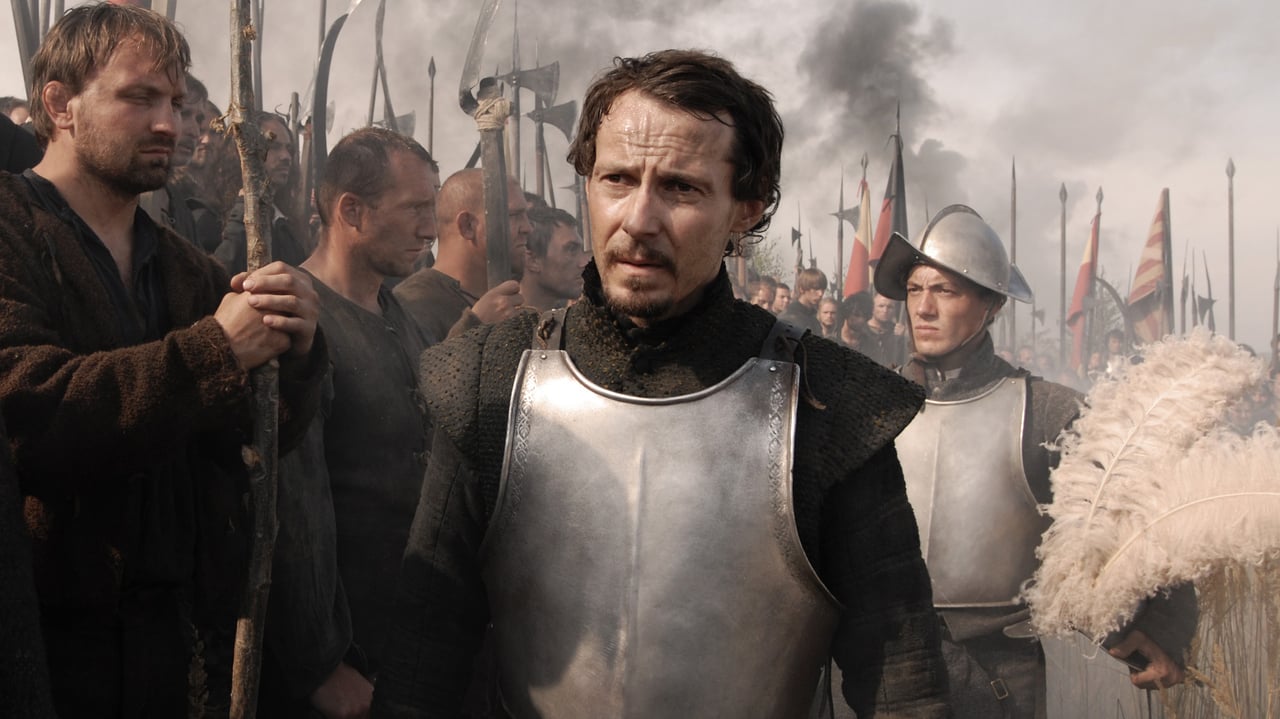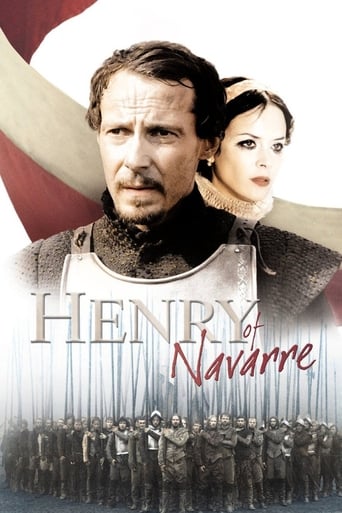Nonureva
Really Surprised!
Protraph
Lack of good storyline.
Ketrivie
It isn't all that great, actually. Really cheesy and very predicable of how certain scenes are gonna turn play out. However, I guess that's the charm of it all, because I would consider this one of my guilty pleasures.
SeeQuant
Blending excellent reporting and strong storytelling, this is a disturbing film truly stranger than fiction
Horst in Translation (filmreviews@web.de)
Henri 4 is, as the name already suggests a biopic about the French king mentioned in the title. Biopic fits in the truest sense as the film starts with the main character as a boy and ends with his assassination. I am not sure how close it is to the Heinrich Mann novel it is based on, but it's a historic drama from 5 years ago and while it is usually not particularly my favorite genre, I was nicely entertained most of the time. Here and there there was a scene where it dragged a bit, but it was still bearable for a 2.5 hour film. It's packed with intrigue, violence, killings, sex and relationship struggles, most of these pretty graphic. These relationships involved queens, wives and, last but not least, God. There are many emotional scenes in this film. The film is written and directed by Jo Baier, a man who won several Adolf Grimme awards in the past already for his works. It is a multi-cultural movie. Many countries involved here and actors from these countries too, especially Germany and France. You may have come across Król, Pippig, Hüller, Hoger, Striesow, Markovics, Urspruch and Monot already if you are interested in German movies.Ulrich Noethen scored a supporting actor nomination at the German Film Awards for his performance here and he was certainly one of the standouts of this movie. Julien Boisselier (did not know him before) was a good choice for the lead character, but not a perfect one. All in all, the movie did not have any real moments of greatness, but no major weaknesses wither. If you like the genre, this certainly deserves a watch. Give it a chance.
Armand
it is far to be a revelation. stylized story, not extraordinary acting, battle and love scenes and the noble purpose to present in decent manner one of fundamental personalities of Modern French history. common biographic movie, without great ambition but remarkable for few scenes who reflects the roots of political crisis, it is a French past page in clothes of German. and without be impressive, the result is far to be boring or slice of time waist, sure, it could be better. but the performance of Julien Boisselier , charming and not complicated, transforming the lead character in a form of sketch, is a good thing and inspired spice for an easy film.
jotix100
From an early start Henri of Navarre, the protestant nobleman saw war first hand. As a child he was present in battles that would mark him for all his life. He also knew fear in his own person when he was surrounded by warriors engaging in combat. In fact, Henri's fate was predicted by Nostradamus himself, when Henri's mother brought the seer to take a look at her young son. Henri was a man destined for great things, as indeed it was the case with his life took him from a small kingdom to be the ruler of one of the most powerful European nations.Born protestant, Henri had everything stacked against him, when France totally dominated by the Pope and his strict Catholic Church. The throne of France was dominated by the powerful Catherine De Medici. Her weak son Francis was the ruler of the land, but her ambition was to make her other son Henri, to succeed his brother. That way Catherine was able to control everything. In a bold move, Catherine decided to marry her daughter Margaret to Henri of Navarre to cement France's dominance. The union proved to be stormy at best. The reign of Henri III, a homosexual, ended with his assassination. Henri of Navarre became the king of France. He wanted the best for the country he loved, but had to yield to entering a conversion that no one really believed came from his heart, but it was a sort of marriage of convenience. Henri true love was Gabrielle D'Estress, who was not accepted by the Pope. Instead he endured a terrible marriage to another Medici, Marie, who gave him an heir to continue the lineage. Henri had a horrible end as he was slain in the streets of Paris.An ambitious project "Henri 4" is an epic of great proportions. A co- production between Germany, France, Spain and the Czech Republic, the film tries to make justice to those turbulent years in a country dominated by religious wars. Directed by Jo Baier, the film will surely delight history fans for it shows powerful individuals whose ambitions were incredible. The cinematography of Gernot Roll, the veteran German cameraman, is amazing. Mr. Roll catches nuances as well as the fury of the battles in details seldom seen. The incidental music is by Hans Zimmer and Henry Jackman. The mainly German cast does a wonderful rendition of the drama as staged by Mr. Baier.
max-vernon
Two and a half hours well spent – if you know the history of the French Wars of Religion. If not and you think the DVD cover promises a battlefest then you may be disappointed. The one major battle scene is short and adequate but war – or how to end it - remains the background theme to this film and occupies little of the screenplay. The film is more about politics than war.As such, it is pretty faithful to the events and characters involved. Charles IX was only 23 when he died but appears older. The protagonist Henry of Navarre, one of the few French kings regarded as 'good', had a reputation for lechery and the opening scene shows our hero embarking on his lascivious path at a very young age. It also establishes his persona as a down-to-earth lover of peasants enjoying the bucolic life in his small kingdom in SW France.Standing between Henry and the French throne we have the last two Valois kings Charles IX and Henri III – childless, weak and dominated by their mother Catherine de Medici who is depicted unsympathetically as scheming and unscrupulous. History dealt Catherine a bad hand. She gave her husband Henri II 10 children in 12 years. He then got himself killed in a joust and left her to run a country where religious civil war was about to break out.Secure in her island fortress on the other side of the Channel, the childless Elizabeth I of England has been credited with preserving religious peace over the same period. Catherine's position was weaker. Effectively the ruler of France for 30 years, she desperately bought time for her sons to grow up. To complicate matters further, we have the powerful Catholic Guise family with their own ambitions for the French throne and the fact that Henry of Navarre is a Protestant in a land where the majority are still Catholic.Grappling with the French Wars of Religion is difficult enough for any history student. Making a film about this topic demands a careful balance between detail and entertainment. The screenplay includes all the main characters and events and will mainly appeal to those with some background knowledge. More battles would not have explained the story.To sum up, we have one battle, four political assassinations, a lot of rampant sex between the hero and various women, one dramatic escape, the famous St. Bartholomew's Day Massacre of Protestants and the good King Henri IV dispensing religious toleration and material well-being to his subjects. To do all this in only 150 minutes is a remarkable achievement.Inevitably, this film will be compared with the award-winning 'La Reine Margot' (1994). The Margot of 'Henri 4' is a much less sympathetic character. This film tells a different story and covers a longer time span. Of the two films, I think I prefer this one.

